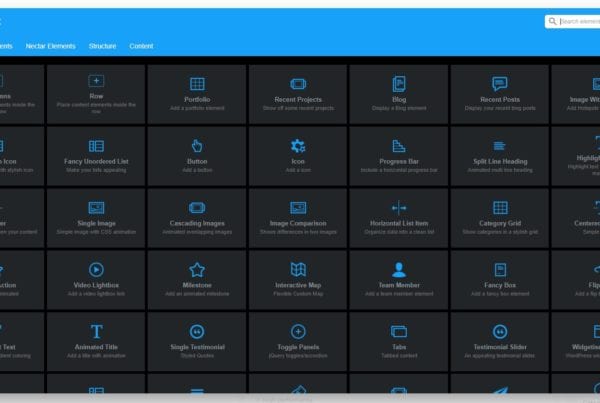Laurie Barron, Founder and Owner of Simply Styled Sites, who transitioned from accounting and information systems into co-founding two successful WordPress agencies (Pursu Agency + Simply Styled Sites)—dives into how she built a business that goes beyond building websites to include strategy, automation, and systems.
Transcript
[00:00:19] Matt: Laurie, welcome to Breakdown.
[00:00:22] Laurie: Thank you for having me. I’m excited to be here.
[00:00:24] Matt: So I put out a call to action to the newsletter, a few, it feels like it was just yesterday, but it was probably a couple of months ago. And I was asking folks to, to be on the podcast. So if you’re listening to this and you’re a WordPress agency owner, freelancer, and going, I wanna be on the podcast too go to learn.gravity.com/.
[00:00:43] Matt: Podcast, it’ll pull up a little thing for you to apply to be on this podcast like Laurie is today. Laurie runs Pursu Agency. We’re gonna learn a little bit more about what she’s up to, but Laurie, how long have you been doing this WordPress stuff?
[00:00:56] Laurie: Yeah, I I actually have a weird, a little bit of a weird background, but I’ve been building WordPress websites for about 15 years or so.
[00:01:04] Laurie: I started out as an accountant and that is not my forte, but it does certainly help when you’re running your own business. Yeah, I’ve been using WordPress and Gravity Forms was one of the first plugins I used, and I feel like. Knowing how to do it and I feel like becoming an expert at it. I can do anything, but I also think I could do anything anyways.
[00:01:22] Laurie: So Gravity forms just helps.
[00:01:25] Matt: What was that jumping off point to start the web agency stuff? Were you getting like accounting clients that were also saying, God, I need a website, and you’re like, I think I can do that too.
[00:01:35] Laurie: Yeah, I I dabbled in a few entrepreneur things myself and then, started out with my own WordPress blog, but my undergrad is accounting and computer information systems.
[00:01:45] Laurie: It is just accounting was where the jobs were, I think in the beginning. ’cause I went to school a long time ago in the nineties when I was in college. And, and then I had my master’s degree in human computer interaction. So that’s like more usability and psychology and how we interact with technology.
[00:02:04] Laurie: And evolution wise one of my companies I, like I said, I just started a blog and I was like, this is fun and this is easy. And then I just started getting connected with some agencies and, I just really transitioned personally because I enjoyed that side of it a lot more than accounting. So I just self-taught a lot, combined with my school experience, and then got connected with an agency, started building sites for them, and it just evolved from there.
[00:02:28] Laurie: So now I have Pursu Agency with a partner and simply styled sites is my freelance just web design portion of it. And yeah, I just evolved into that and now I obviously do that full-time.
[00:02:41] Matt: I wonder if you could just maybe unpack that your early days of like working with another agency.
[00:02:46] Matt: ’cause I think that this is something that a lot of freelancers that I talk to are, I don’t know if they’re afraid to do it, but they, I think it might be like an ownership thing early on. I think it’s a great way. To get an education on running your freelance business or running a, maybe a bigger boutique agency that you might be interested in by partnering with agencies first and foremost, instead of knocking on the door of that local customer who needs a website, why not look, knock on the door of a local agency and work with them first to make sure that you kinda understand all the process.
[00:03:18] Matt: It’s a great way to learn. Also get paid and your customer’s qualified because they want websites from you Exactly. The other side. So I wonder if you could unpack that or spread any advice around that concept.
[00:03:29] Laurie: Yeah, I think a lot of it is leverage and contrary, now that we are an agency, we also look for people to help.
[00:03:35] Laurie: Contractors to help support our growing needs and things like that too. That’s actually how I met my Pursu Agency partner, Betsy. She lives on the East coast and I’m in San Diego on the west. And we actually met because we were both working as contractors for an agency. We both have white German Shepherds and instead of talking tech, we decided to talk about our dogs for probably the first hour that we met.
[00:03:58] Laurie: And we just really realized how well we balance each other. So she’s the graphic design brand expert and but knows tech really well. And I am a web developer that has a really good eye for design. And so we just started starting work together as an agency, but that was how we met. But it is nice to start that way as a contractor because.
[00:04:19] Laurie: They’re bringing in the consistent work and if learn a lot. And then of course as we would go, we always have ways like. That we say I would do that differently. Or you can see loopholes in communication or loopholes when there’s inconsistent groups of contractors. Based on like where’s the content?
[00:04:37] Laurie: Who’s doing what, project management wise. So we really realize the value of having a consistent team of contractors. And I created a really robust project management system, I think because of that early agency experience as well. So it’s really just. Evolved into, really reliable, great collaborative team for Pursu Agency.
[00:04:59] Matt: Yeah. I’m gonna say ai, but I don’t wanna dive too deep into that yet. But what I’m hearing from a lot of folks is this whole website building thing is going to be done by ai. What, why are we even selling websites anymore? There’s a lot of fear factor in a lot of the AI stuff that I see.
[00:05:16] Matt: But I started an agency, ran it for a decade. I started it back in 2007. In 2007, we were saying the same thing when like page builders came onto the scene. Exactly. That’s what I
[00:05:26] Intro: would say.
[00:05:28] Matt: Yeah. So I’m wondering if, like, how has your. I, the business term that a lot of people use is moat, right?
[00:05:33] Matt: Like, how do you see your moat or your defense for the business, for the web agency? When tooling is getting faster, cheaper, better, but people are still knocking on the door going no, you just do this for me. I even though I could do it, I don’t wanna spend the time doing it. What’s your thoughts?
[00:05:48] Laurie: Yeah, I’m sure, I know this is a hot topic like always, but I, you’re the first person that I’ve said, ’cause I always say the same thing, and I’m not really afraid of AI because I was like, this happened when page builders came out. Anybody can do it. And the rhetoric that they say around that, but there’s always gonna be people that don’t want to do it.
[00:06:04] Laurie: And then there’s the education piece too, because there’s people that don’t know how to do it properly. Even with chat GPT, you can say the same thing. It’s prompt engineering. So do people know how to prompt it properly to get the exact output that they need? So there’s still all of that.
[00:06:20] Laurie: And the thing that you don’t get with. AI necessarily, or building a website right now is the strategy behind it. So there’s so much that we do, and the handholding and the client relationships that I still think that people, I know that people still need the strategy on how to put a homepage together.
[00:06:40] Laurie: There’s an order of operations. There’s content speaking to your user. You have to find out, the ideal client first, all these things. So I think that. Yeah, you can create an AR website in minutes or whatever, but it’s gonna look like everybody, it’s not gonna stand out from the competition. It might not reflect your voice.
[00:06:57] Laurie: I just think that’s always gonna be the case. And there’s always and it might serve people for a while and they might think that they can do it. But I think this is something that our industry has always battled with also, not even just from ai, from people getting websites for $1,500.
[00:07:14] Laurie: From the person that says that they can do it all or a lost in translation, communication, perhaps. Things like that. And so a lot of what I do is education as well, because people don’t know they could build it and then in three, six months they’re gonna wonder why it’s not converting or why it doesn’t work or whatever.
[00:07:32] Laurie: Yeah. They, if they have to go through that pain point first, so be it. But I think you could say that about a lot of things, not just ai.
[00:07:39] Matt: Yeah. And I think, as always, as the industry evolves and the tools get better, faster, cheaper, whatever, and now like thinking for us, allegedly with ai that yeah, we might seed ground to some of those folks that are gonna do it, to do it themselves, but I think.
[00:07:54] Matt: If you’re a young freelancer or young agency, young as in like you just started this freelancer agency thing listening to this, there’s a certain set of client, like if you go to a bigger business with, a marketing manager and they have budget to spend, they’re not, they don’t love the.
[00:08:11] Matt: This is just their job, right? For a lot of the time. Like they, they just need it to perform for them and they’ve got a million other things happening probably, and they’re reporting to their boss and it’s just they just need somebody to rely on and it’s maybe thinking, okay, maybe I don’t serve that end user anymore, that might grab these tools and do it themselves.
[00:08:30] Matt: Maybe now I have to set my sights on that bigger business. A mid-size business that has a team of people and they just want a professional to come in because that’s a whole different ball game in terms of what you’re building, but also what you’re getting paid. So it’s probably a better thing to set the sites higher versus the smaller client.
[00:08:49] Matt: That’s just my feelings. I don’t know if you have any thoughts on like how you elevated, over the years to get bigger, better clients.
[00:08:57] Laurie: Yeah I agree with your thoughts too. I think something that people don’t realize too is I believe in sticking to our expertise. So like the SEO expertise is a very technical when done properly and this is technical.
[00:09:11] Laurie: A whole nother podcast episode on technical versus on page, but on page a little simpler, right? Technical is an ongoing, beast and so we believe. And that’s just an example of one of the contractors. But really keeping our expertise separate and where we, our zone of genius or whatever where we know where my line stops and somebody else’s begin begins.
[00:09:35] Laurie: But having that collaboration I think is really what has helped us grow. And what larger companies need to realize is this is a team of experts. That you’re working with, to produce the highest quality, to make sure that everything matches, because a designer could come in and completely undo all the SEO work or vice versa, like they’re trying to use HT tags to make a font larger and messing that up, so without a collaborative team and knowing where everybody’s, task ends and the other one begins, I think is really important. And so the larger the project, obviously the greater the project management and keeping all of that.
[00:10:11] Laurie: In line. So I think. A lot of that in sales has been communication and but without overwhelm. Yeah. So I have to tell somebody like, there’s five contractors on this project, and yeah, we give direct access to them also. I just think it’s really important to know who you’re working with and that’s how we’ve scaled is once somebody says that.
[00:10:32] Laurie: Understands that they really want the expert and to have it done right, then they’re willing to make the investment. Does everybody need all of that in the beginning? No. So that’s where, some of that. Education and really honing in on somebody’s needs comes in
[00:10:48] Matt: A phrase that I often overuse is like core competency. I use that a lot. Yeah. And I like talk about myself, but I’m gonna steal your phrase zone of genius. ’cause I like that way better.
[00:10:58] Laurie: Like zone of genius.
[00:10:59] Matt: Yeah. It just sounds so much better. But we were talking before we hit record and we’re just talking about like the types of clients that you work with and you’re saying, I stay away from the WooCommerce side.
[00:11:09] Matt: I’m wondering if you have a story where maybe you did take on something that was a little too maybe a little overwhelming or just a little far outside of that zone of genius where you learned that lesson. You were like, I’m never touching this again. Was it WooCommerce? Was it something else?
[00:11:23] Laurie: It probably tends to be WooCommerce. But I. I think what happens in those situations is I hurt myself or my business. It’s not that I don’t deliver something for a client, it’s that I, maybe I’m spending my wheels because I under scoped, or Amazon is a ruined all of us with their free shipping and all of these things.
[00:11:44] Laurie: So now everybody thinks when it comes to e-commerce that. Those things are just standard, right? And so they don’t know to ask oh, you mean I have to add an abandoned cart notification? And I’m like, yeah. And I love WooCommerce. Like it really is super robust, but at the same time, it’s like you have to.
[00:12:05] Laurie: Really get out the scope in the beginning and I just seem to get into trouble with that because I try to be like, this is the basic stuff, but then every plugin is an add-on. You have to play, pay more money. And so I just like steer clear of that, but I’m the one that ends up. Spinning my wheels just out of ethics.
[00:12:21] Laurie: And I, want the client to get what they need and that communication is tough sometimes. ’cause they feel like they’re being penny pinched and, those are the challenging situations for me. And I don’t really enjoy WooCommerce probably because of that, because I’m a people pleaser and so it ends up not being very beneficial for me.
[00:12:38] Laurie: The clients benefit a lot.
[00:12:40] Intro: Yeah. Yeah.
[00:12:40] Laurie: Yeah. Yeah, I I’ve had to really learn to balance that, and I do WooCommerce still sometimes, but it’s not, again my zone of genius. It’s not something that I prefer to do. So
[00:12:50] Matt: oftentimes when I talk to new freelancers coming into the space, like I try to. Guide them.
[00:12:57] Matt: I try to stay away from saying the phrase like, done for you service, or if you think of popular things like website in a day kind of thing. But I like that as a critical thinking piece to say, here’s what I can offer you. Here’s all of the things I can do in this box for this price.
[00:13:15] Matt: And when you think about price, the price is so that you’re profitable, right? Because I’ve tried to get folks to think about. Profitability so that you can be sustainable so that when your client knocks on the door a year from now, you’re still in business. Like profit is not a bad thing, right?
[00:13:28] Matt: We all have to think about that pricing. And I’m curious how over the years, how maybe you thought about systemizing. The agency and what you deliver, for profitability. In other words, have you boiled it down to client walks in, you know what you’re gonna build them and how you’re gonna build it?
[00:13:45] Matt: Or do you just let the canvas stay open and then you say, okay, customer, what do you want? And then scope the price from there.
[00:13:51] Laurie: Yeah, that is always a challenge. I am a spreadsheet geek. And so I have put together, I like to build, okay and challenge myself. So I put together a very robust project calculator, basically to help myself and anybody in my team basically check, check boxes, going through the whole ch whole checklist.
[00:14:13] Laurie: Because for larger projects, I do think that we need a discovery period. And so sometimes we’ll charge for that upfront too, if it’s a larger project and really dive in. And a discovery period could be. $10,000. It could be a very significant portion of the strategy that we go through in the beginning so that we can really hone in on that.
[00:14:32] Laurie: So we have learned to charge for that upfront. And then if for whatever reason they decide to not use us, then they’ve got really valuable information and they have a much clearer idea of where they’re moving. After that that hasn’t actually happened, but we always tell them, they usually go with us after that because we provide a really detailed way to, to define scope in the beginning.
[00:14:51] Laurie: But yeah, process wise too, I think for both of my companies, we don’t really templatize, but internally I have systematized my processes. So we really pride ourselves on bespoke and quality and customer service and setting the proper foundation. So I try to explain in the beginning what, to me, a proper foundation looks like on WordPress, making sure that I’m using consistent plugins that are compatible.
[00:15:18] Laurie: I pass through, like in California, I don’t know about everywhere, but a DA is a law, so you have to add it. And people don’t know what they don’t know. I try to communicate this is the foundation that you get and and systematize my processes as much as possible. And part of that actually is gathering content using gravity forms also.
[00:15:39] Laurie: So I try to make it, yeah. As structural and systematized internally and as easy as I can for the client. Yeah.
[00:15:50] Matt: Yeah.
[00:15:50] Laurie: But scoping it out is hard. I think for larger projects you have to do like a paid discovery period.
[00:15:55] Matt: Yeah, for sure. Oftentimes a great way for you to be able to hit the eject button on a customer.
[00:16:00] Matt: If if you’re going through that pre or pre-sales or pre-discovery process or they’re paying you to discover stuff and you start to realize, oh yeah, this is probably not gonna work out. Let, lemme course, lemme give you the report, but then I’m gonna leave and you take this somewhere else, which is a great out.
[00:16:14] Matt: Yeah.
[00:16:15] Laurie: Yeah, I think too, as you develop your processes and you grow and you become a little bit more secure, I know that earlier it’s like you’ll take any project and do anything, and then as you grow you realize what’s a good fit and what’s not a good fit. You become a little more protective of yourself and your company, and so all of those processes are for the client also, but to protect your agency or yourself as well.
[00:16:36] Matt: Yeah. This is a Gravity Forms podcast, so let’s just talk about Gravity forms before we wrap up. You were saying again, before we hit record, you were building something really cool. You like the team at Gravity Whiz, which I’m, I know they listened to every episode and I’m sure Dave is backing up and down right now.
[00:16:52] Matt: Dave was actually the last guest on Dave, the one of the founders of Gravity. Was just on the last episode here at the time of this recording. What have you been building with Gravity Forms? What’s ex, what excites you when putting things together for customers and leveraging gravity forms and maybe even gravity whiz.
[00:17:07] Laurie: Yeah, no gravity whiz is so great. I’m I’ve been using Gravity forms the entire time, and I have every I don’t know if there’s a perk or something that I haven’t used with them. I just recently started using Gravity Connect and. I just feel like with gravity forms, I can do anything.
[00:17:24] Laurie: And I think along with that is the consults I do for business automation because it’s not just form building. And so that’s what I really try to talk to clients about is what, what are your repetitive tasks? What can we systematize? How can we connect this? I use Zapier a lot also with Gravity Forms.
[00:17:42] Laurie: So I am creating support ticketing systems or whatever and sending it to, from Gravity forms to Asana or some other project management system. And that’s, on a simple form. So I. I hand in hand combine gravity forms with a lot of business automations and even their basic things like adding survey fields it’s really valuable because clients get the adv aggregate results and can see oh wow, everybody’s selecting.
[00:18:10] Laurie: This dropdown or whatever and this selection, and then they start seeing patterns. So we really wanna make everything we do intentional connect as much as we can and get data over time to make informed marketing decisions or even internal process decisions. Yeah that’s gravity forms.
[00:18:28] Laurie: I just feel like I can do anything and I, yeah, I’ve done some really cool stuff with it.
[00:18:32] Matt: Yeah. Do you have a favorite set of add-ons? You mentioned Zapier. Is there anything else that you’re always using on a client site with gravity forms?
[00:18:40] Laurie: I don’t always use Zapier, but I do like it.
[00:18:43] Matt: Yep.
[00:18:44] Laurie: I call it Zapier. Some people say Zapier, but
[00:18:46] Matt: always I say, I call it Zapier. Yeah.
[00:18:48] Laurie: Okay. Like a zap, right?
[00:18:49] Matt: Yeah.
[00:18:49] Laurie: So I just wanna make sure I’m not saying it wrong. I. I, I just, I feel like it really depends on the needs. I’m always connecting either a payment gateway or a CRM. Those are obviously the two basics because turning it into a tool to make money is amazing.
[00:19:05] Laurie: I use merge tags a lot because we wanna personalize things. I just recently used the conversational one because it keeps users focused and it’s. Visually a little bit more appealing. Limit submissions. I, again, I’ve used recently so that like I just created with Gravity Connect.
[00:19:21] Laurie: Gravity Connect is my new one that I’m having a lot of fun with. And I recently connected it to with chat GBT for people that may or may not know Gravity Connect it. Combines chat, GBT. So for example, to come full circle with how I’ve systematized some of my internal processes, I created a homepage content gathering form, and I use the save and continue on that because it is very heavy.
[00:19:46] Laurie: But I’ve made it so that it’s like. I have lists, what is your problem solution. So I’m not just like having long paragraph fields where people don’t know what to enter. So I really work on user experience. That was part of my graduate degree was the user experience stuff. I’m collecting all this data using Save and Continue so that they can come back to it.
[00:20:06] Laurie: I do actually love that Save and continue. Has. A 30 day limit because it keeps my clients moving.
[00:20:13] Matt: Yeah.
[00:20:13] Laurie: Otherwise I’m like hounding them for stuff and I’m like, you’re gonna lose this link in your progress if you don’t do it. Yeah. So I actually love that. And so we, Betsy and I for Pursu, have created like a perfect homepage layout.
[00:20:26] Laurie: So we go in order and it’s. Pretty standard for most, you want your credibility, your about, whatever. But obviously every person might slightly vary. But I’ve got a way to gather this homepage content in the backend with Gravity Connect. I’ve taken those list fields or whatever, and I said, combine this field in this field and this field, and create me a paragraph for, a summary paragraph explaining, what the benefits are and how the solution, and, so I’ve created it. So basically it’s spitting out their homepage content for them. With Gravity Connect. Yeah. And chat GPT. And then furthermore, because it’s a paid product on my website, I had to have Gravity Whiz help me connect it to WooCommerce.
[00:21:08] Laurie: So you buy the product. But I wanted it to you only get one really? But WooCommerce and Gravity forms weren’t connected. Does that make sense? Yeah. So every time they purchase it, they help me with a snippet. So that’s another, way that gravity whiz has been genius for me and they figured it out.
[00:21:27] Laurie: And yeah. So every time they buy it, it goes back down to zero and they have to buy it again if they want, if they wanna use it again.
[00:21:33] Matt: So it’s almost like you turned your consulting into a product that somebody can just go buy. They just go buy it one off and then. They could either just run with that sort of like we were talking about the presales or the discovery stuff.
[00:21:44] Matt: They could run with that and just do their thing. Or they’d be like, Hey, you know what? Carry this over the finish line for me, and get it done.
[00:21:51] Laurie: And it also depends on my audience too. I, part of it too is if the larger agencies want a copywriter with a, chat GBT assistance or whatever, and they want all the strategy behind the copy and they don’t wanna take the time to input the form field.
[00:22:04] Laurie: ’cause it does take time.
[00:22:06] Matt: Yeah.
[00:22:06] Laurie: Then we walk through that with them, that’s more of the larger agency, the handholding, the, talking through it with people, getting it out of them. And I use that more of us to systematize people. That Wanna do it alone? Yeah. Take their time doing it and then it creates a little bit easier process for me.
[00:22:23] Laurie: ‘Cause I guide them through automation and not sitting here on a conference call.
[00:22:27] Matt: Yeah. Fantastic. Laurie Barron, thanks for hanging out today On Breakdown. Where can folks go to say thanks?
[00:22:33] Laurie: Yeah. So Pursu Agency is our agency website. And then I, all my paid tools for blog post generator and homepage content are on simplystyledsites.com.
[00:22:47] Laurie: So again I operate both companies and have implemented some really great tools to help people build websites.
[00:23:00] Matt: That’s it for today’s episode. If you could do one more thing for me today, share this episode on social media. Your favorite Facebook group or Discord channel. Spread the word about this podcast. It really helps. If you haven’t added breakdown to your favorite podcast app, point your browser to gravity forms.com/breakdown and click the icon of your app to add us and listen to us every.
[00:23:23] Matt: Two weeks. Okay, we’ll see you in the next episode.
Key Takeaways
- Transferable skills matter. Laurie’s accounting and CIS background gave her an edge when building an agency – having comfort with numbers, processes, and systems helped her structure for profitability.
- Find your zone of genius. She emphasizes the importance of knowing what you do best (and what you don’t) so you can stay profitable and avoid doing everything.
- AI and page-builders aren’t replacing real expertise. While tools have evolved, Laurie argues the real value comes from strategy and unique voices -not just clicking templates or using AI.
- Priced discovery phases = smarter projects. Laurie uses paid discovery (for larger projects) to define scope, align expectations, and protect profitability – especially for projects $10K+.
- Automation is a differentiator. Over 15 years using Gravity Forms, Laurie built systems: from intake forms that feed content into ChatGPT, to support tickets via Zapier, to survey fields that enable data-driven decisions.
- Productize your services. Instead of only doing custom projects, Laurie also creates self-service products – so clients can buy smaller pieces and the agency scales better.
conclusion
If you run or plan to run a web agency (especially WordPress-based), this episode reinforces that the differentiators aren’t just tech skills—they’re business mindset, process, and positioning. Laurie’s journey shows how blending strategic thinking + operations + automation creates a sustainable model, not just one‐off site builds.








